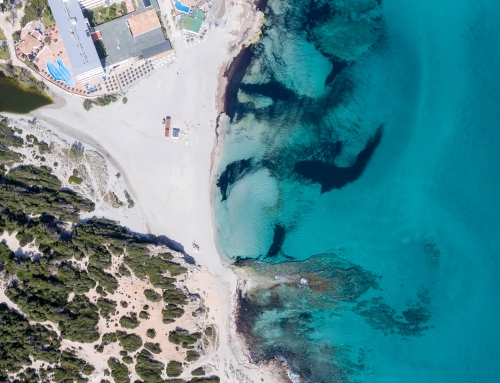An exceptional archaeological site from the Iron Age
A necropolis in used from the Iron Age through Roman times, containing many tombs built of large ashlars. A spectacular place beside the sea.
The necropolis of Son Real is a set of funerary constructions beside the sea, at the place known as Point dels Fenicis, and used from the Iron Age through Roman times. More than 100 stone tombs have been discovered.
Ashlars were used to form small rectangular, circular or oval spaces where the corpse was deposited in foetus position, then covered with stone slabs that emulated the style of a talayot or naveta. The site is still under excavation.
From the start, there has been a futile search for a settlement that might have developed a necropolis of this size. However, one hypothesis suggests that it might be a necropolis set aside exclusively for the ruling classes – since the skeletons recovered show scant signs of heavy work – from one part of the island, who might have built their tombs here as prestigious monuments erected during their lifetime: circular or square talayots, and sanctuaries.
The earliest indications of the necropolis stretch back to the 7th century BC, when the Talayotic culture had been underway for several centuries and the use of iron was spreading. What at first was a cemetery for the ruling classes might have evolved and continued to be used in Roman Times. This longstanding activity is reflected in the changes in the burial rites.
A few metres away is the islet dels Porros, not accessible to visitors, where archaeologists have found other graves along with pieces of ceramics and glass paste.
It can be accessed from the Son Bauló beach (Can Picafort) by a 20-minute walk along the beach or from the public Ses Cases de Son Real, following a 2.3-km long signposted, low-difficulty itinerary.


